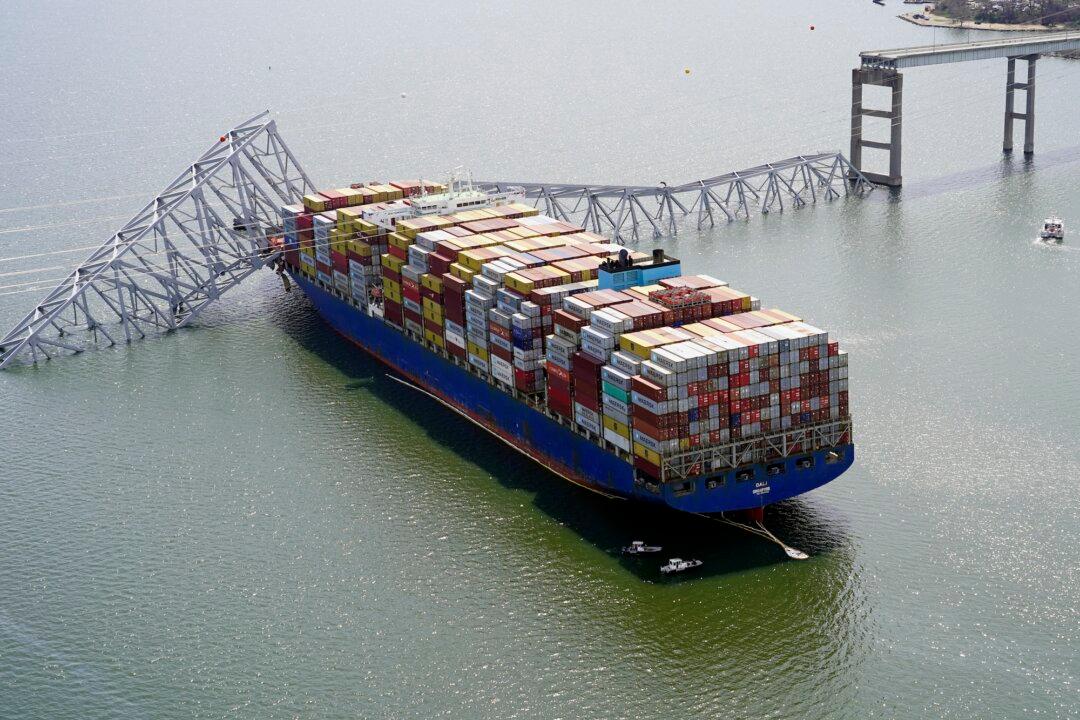With what’s shaping up to be a long-running investigation into the collapse of the Francis Scott Key Bridge in Baltimore, attention is now turning to the massive cleanup operation that Maryland Gov. Wes Moore has described as a “daunting” task.
A crane described as the largest on the Eastern Seabord that can lift 1,000 tons appeared near the site of the collapsed highway bridge at the Port of Baltimore on March 29, as crews prepared to begin clearing the wreckage.





